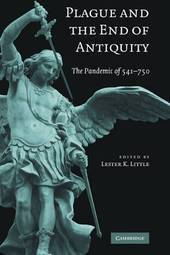
|
Plague and the End of Antiquity: The Pandemic of 541-750
Hardback
Main Details
Description
Plague was a key factor in the waning of Antiquity and the beginning of the Middle Ages. In this volume, the first on the subject, twelve scholars from a variety of disciplines - history, archaeology, epidemiology, and molecular biology - have produced a comprehensive account of the pandemic's origins, spread, and mortality, as well as its economic, social, political, and religious effects. The historians examine written sources in a range of languages, including Arabic, Syriac, Greek, Latin, and Old Irish. Archaeologists analyse burial pits, abandoned villages, and aborted building projects. The epidemiologists use the written sources to track the disease's means and speed of transmission, the mix of vulnerability and resistance it encountered, and the patterns of reappearance over time. Finally, molecular biologists, newcomers to this kind of investigation, have become pioneers of paleopathology, seeking ways to identify pathogens in human remains from the remote past.
Author Biography
Lester K. Little is Dwight W. Morrow Professor Emeritus of History at Smith College and former director of the American Academy in Rome. He is a past president both of the Medieval Academy of America and of the International Union of Institutes of Archaeology, Art History, and History in Rome. He is the author of Benedictine Maledictions: Liturgical Cursing in Romanesque France and Religious Poverty and the Profit Economy in Medieval Europe.
Reviews' ... interesting and thought-provoking throughout. Each chapter has new ideas to provide the reader ... this book is an indication that this fascinating topic is finally receiving the scholarly attention it deserves.' BMCR
|